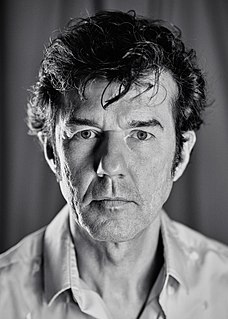Top 54 Quotes & Sayings by Stefan Sagmeister
Explore popular quotes and sayings by an Austrian designer Stefan Sagmeister.
Last updated on November 21, 2024.
U.K. psychologist Daniel Nettle thinks of happiness as a carrot on a stick, designed by evolution to show the right way, and also designed so that we will never permanently reach it. We likely would just sit around and eat sweet and fatty foods all day, and that is simply not in the interest of evolution.
I originally had opened the studio in New York to combine my two loves, music and design. And we created videos and packaging for many musicians that you know, and for even more that you've never heard of. As I realized, just like with many, many things in my life that I actually love, I adapt to it. And I get, over time, bored by them.
I run a design studio in New York. Every seven years, I close it for one year to pursue some little experiments, things that are always difficult to accomplish during the regular working year. In that year, we are not available for any of our clients. We are totally closed. And as you can imagine, it is a lovely and very energetic time.
I can see my work as a job. I do it for money. I likely already look forward to the weekend on Thursdays. And I probably will need a hobby as a leveling mechanism. In a career, I'm definitely more engaged. But at the same time, there will be periods when I think, 'Is all that really hard work really worth my while?'
I am not a religious person myself, but I did look for nature. I had spent my first sabbatical in New York City. Looked for something different for the second one. Europe and the U.S. didn't really feel enticing because I knew them too well. So Asia it was. The most beautiful landscapes I had seen in Asia were Sri Lanka and Bali.
At the opening of our exhibition at Deitch Projects in New York we featured a wall of 10,000 bananas. Green bananas created a pattern against a background of yellow bananas spelling out the sentiment: Self-confidence produces fine results. After a number of days the green bananas turned yellow too and the type disappeared. When the yellow background bananas turned brown, the type (and the self-confidence) appeared again, only to go away when all bananas turned brown.
The conventional wisdom in our business is that you have to grow and keep moving to survive. We never grew, always stayed tiny, and it serves us very well over the years, allowing us to pick and choose projects, and keeping our financial independence from our clients. We actually have a rather good track record, because we do select projects carefully. Most of our ideas don't eat dust but glimpse the light of day because we find it much more helpful to spend some serious time and effort before we start working on a project, rather than suffer through it afterwards.
























